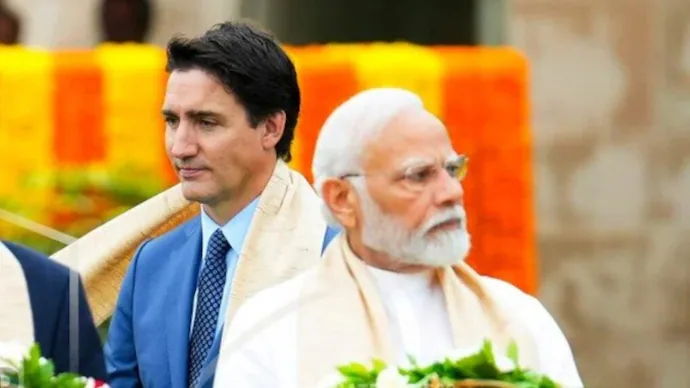Monday saw a dramatic escalation in the already fraught relationship between India and Canada, with New Delhi withdrawing its High Commissioner to Canada, Sanjay Kumar Verma, and several other senior diplomats amidst growing tensions. This move reflects deep-seated distrust and increasing animosity stemming from multiple unresolved issues, particularly related to the handling of Khalistani separatists and the murder of Hardeep Singh Nijjar, a prominent Sikh separatist leader based in Canada12.
The decision to withdraw diplomats comes after months of escalating diplomatic rows, largely triggered by Canadian Prime Minister Justin Trudeau’s allegations in September 2023 accusing India of involvement in Nijjar’s murder without providing substantial evidence. These accusations have been repeatedly rejected by the Indian government, who describe them as “motivated” and “absurd”2. The latest development follows interactions where assertions made by Ottawa lacked factual backing, indicating according to New Delhi, a deliberate strategy aimed at smearing India politically3.
India has consistently voiced strong objections to these baseless targeting allegations, emphasizing that since Trudeau made his charges, no concrete evidence has been provided by the Canadian government despite numerous requests from India. Instead, India accuses Ottawa of fabricating allegations designed to malign Indian officials and justify its inability to curb Khalistani extremism on its soil124.
“We have no faith in the current Canadian Government’s commitment to ensure our security,” stated the Ministry of External Affairs (MEA). Therefore, India decided to withdraw the High Commissioner and other targeted diplomats and officials to safeguard their safety amidst an atmosphere of extremism and violence supported by Trudeau’s administration1.
The MEA summoned Canadian Charge d’Affaires Stewart Wheeler to convey New Delhi’s decision, emphasizing that targeting Indian diplomats and officials without evidence was completely unacceptable. Additionally, India reserved the right to take further steps in response to Canada’s perceived support for extremism, violence, and separatism against India1.
Wheeler defended Ottawa’s stance during his departure from the MEA office, asserting that credible evidence had been provided linking agents of the Government of India to Nijjar’s murder. He urged India to investigate these allegations thoroughly and cooperate with Canada to resolve the matter amicably1.
India’s response has been equally sharp. On Monday morning, New Delhi issued a scathing statement rejecting Canada’s allegations as “preposterous imputations.” The MEA accused Trudeau’s government of engaging in vote bank politics by pandering to pro-Khalistan elements within Canada without taking concrete action against them2. This stance aligns with India’s long-standing concerns regarding the flourishing Khalistani movement in Canada, where extremist groups allegedly operate freely under the guise of free speech24.
New Delhi further highlighted incidents dating back to 2018 when Trudeau’s visit to India was criticized for its alignment with political interests linked to specific communities. Additionally, India accused Ottawa of harboring individuals with separatist views and interfering in India’s internal affairs, referencing events such as Trudeau’s comments on Indian farmers’ protests in December 20204.
This flare-up in tensions follows occasional diplomatic engagements, such as brief meetings between Trudeau and Prime Minister Narendra Modi during international summits like ASEAN-India Summit in Vientiane, Laos. However, these interactions have yielded little progress towards resolving underlying issues due largely to Canada’s perceived lack of tangible action against anti-Indian activities13.
In response to escalating tensions, New Delhi last year called on Ottawa to reduce its diplomatic staff in India to ensure mutual parity in representation—a move aimed at addressing perceived imbalances or serving as a countermeasure during strained relations. Consequently, Canada withdrew 41 diplomats from New Delhi3. Now, India seems determined to mirror this reciprocity measure by reducing Canadian diplomatic presence significantly through withdrawing key personnel.
Ultimately, repairing bilateral ties hinges on concrete actions taken by Ottawa against pro-Khalistan elements operating freely within its borders. Despite repeated diplomatic overtures from New Delhi, no substantial measures have been forthcoming from Canada. Instead, Ottawa continues asserting allegations without providing evidence—actions deemed politically motivated by India24.
As both nations navigate this complex web of accusations and recriminations, it remains unclear whether future steps might lead toward reconciliation or further escalation. One thing is certain: the withdrawal of India’s High Commissioner marks a serious turn in what promises to remain a contentious relationship until fundamental differences are addressed satisfactorily.
